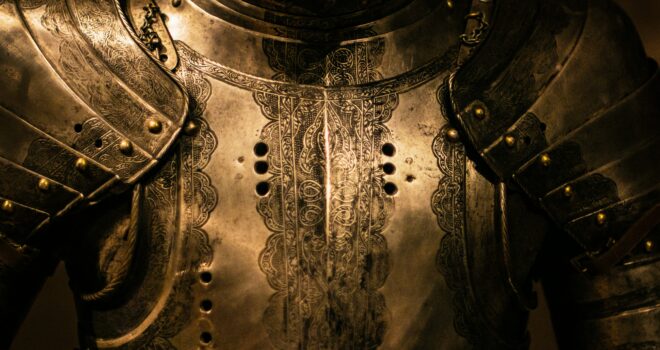Sadly, the modern world is full of scandal. But “scandal” is a word often misunderstood. In contemporary usage, it means any bad (or seemingly bad) action of a person in a position of leadership. This definition is insufficient. We need a better understanding of it so that we can protect ourselves, and others, from it.
St. Thomas Aquinas begins his discussion of scandal in the Summa Theologiae II-II, Q. 43 by offering a general definition: scandal is something that is a stumbling block or obstacle for someone in the spiritual or moral life. It refers to the aspect of one’s act that affects other people. It begins with the observation that our actions have effects on others outside our intentions.
Next, Aquinas explains that there are two different types of scandal: passive and active. Passive scandal is when an observer takes offense at someone else’s act which was good. The act itself was good, but because of some defect in the observer, the observer finds the good act of the other an obstacle. St. Paul mentions this type of scandal in his letters. He teaches that eating meat (which was involved with pagan sacrifices) is not wrong, but some people are weak and thus are spiritually hurt by their companions’ consumption of meat. So, Paul instructs the strong (who know eating meat is acceptable) to not eat meat around the weak (those who think eating meat may be sinful) (Romans 14). So, sometimes a good act can cause scandal. This is due to a weakness in the observer. We should not be too quick to number ourselves among the strong who do not passively receive scandal.
Active scandal, on the other hand, is when the agent’s act is immoral or bad in some way. The act done is actually wicked in some degree. Aquinas is clear that active scandal is not only about gravely evil acts. Venially evil acts can also cause active scandal. Now, Aquinas adds another distinction to active scandal. Active scandal can be either intentional or accidental. This means that the agent’s sin can be designed or performed with the intention of causing some obstacle to another, with the explicit desire to lead others into sin. This is active and intentional scandal. This is the main and worst type of scandal. In it the agent does an evil act with the intent of causing others to do further evil acts. There is malice towards God and towards others. Accidental scandal, conversely, is when the agent has no intention of erecting an obstacle for others. Instead, the person simply does an evil act, which may happen to lead others to sin—but that was not their intention.
Clearly, we should always avoid active scandal of either kind (intentional or accidental) because we should avoid sinning, and active scandal always begins with some sin. But when and how should we avoid passive scandal? Are we to give up good things, to avoid certain good acts, because they may be a stumbling block to another because of their weakness? Following St. Paul, Aquinas says yes! Helpfully, he makes some distinctions.
First, he says that we should never forgo some good thing to avoid passive scandal when the good thing is necessary to salvation—when it is a very great good. Secondly, if the good we are considering forgoing is not necessary for salvation—a minor good—then we must consider those we risk giving passive scandal to. If they may receive passive scandal due to their malice, we may do the good thing. But, if they may receive passive scandal due to mere weakness or ignorance, then we ought to forgo the good thing out of charity for them. In these cases, we ought to love them and try to remove their weakness and ignorance through our fellowship, prayers, and instruction. He also makes one caveat. If we have some external obligation to do certain good things, then we must do them even if we risk giving passive scandal to others due to their weakness or ignorance.
It seems to me that one great error that disposes many of us (myself included) to receive passive scandal is that we do not fully grasp what original sin means; we do not understand its implications. What is original sin? Historically, it is the first sin committed by humans—by our first parents Adam and Eve. But it is not simply the first sin. Because it was the first sin, it is also the Fall. This refers to the effects of this first original sin. Prior to original sin, Adam and Eve lived in perfect harmony with each other, creation, and God. They were blessed with many supernatural graces and perfections. They had wills perfectly conformed to God’s and their passions were completely under their control—they did not feel unruly passions rebelling against their reason.
Yet, when they committed the original sin, they lost all these graces. Since they chose something other than God, they lost grace, and their whole human natures became disordered or corrupted. Due to sin, the human intellect is dulled—we have a hard time figuring out what is true or false, and reasoning is difficult. Our wills were also weakened; even when we know what is right, we often choose something else. The passions rebel against our reason and will.
Since after their sin, Adam and Eve only possessed a disordered and fallen nature, that is all they could pass on to their descendants—to us. So, we inherit original sin and its effects: weak intellects, weak wills, and rebellious passions. None of us are safe from this. Neither wealth, nor ethnicity, nor education, nor ordination will remove this feebleness from us.
While Christ came to defeat sin and death, He left the final victory over sin until His second coming. Baptism removes original sin but not its effects. We will still die. We still suffer from the weakness of intellect, will, and passions. Christ had to leave these liabilities to prevent people from seeking Baptism for the wrong reasons—if Baptism made us immortal, or removed all brain fog and weakness of will, or made our passions perfectly conformed to reason, then Baptism would be a great asset for temporal gain, and many would seek it for the wrong reasons. Also, since Christ suffered temptation and died for us, we should desire to undergo these things with Him.
Due to original sin, we should expect everyone to sin. No sin should come as a great surprise to us. We live in a world of sinners. None of us can avoid all sin. Most of us will likely struggle with grave sins until we die, a few saints will overcome their grave faults and only remain with venial faults. G.K. Chesterton explains that “the Church is justified, not because her children do not sin, but because they do” (G.K. Chesterton, The Everlasting Man, “Introduction”).
This should not make us cynical. The tradition of the Church is clear that we should give others the benefit of the doubt as long as possible. St. Paul teaches, “in humility count others better than yourselves” (Philippians 2:3). There is no reason to go about highly suspicious of everyone we meet. However, we should be aware that everyone is truly capable of great evil, including ourselves. The benefit of properly understanding the Fall is that it removes our susceptibility to scandal of any kind. If we know that everyone is struggling with sin, we should not be surprised or hurt when we eventually learn about another’s sin. Sorrow we should have, but not surprise or hatred.
A rich understanding of the Fall is thus a shield from scandal; it protects us from suffering due to others’ faults: their sin, their ignorance, their incompetence—all are due to the Fall, and all suffer from them.
Photo by Nik Shuliahin on Unsplash











